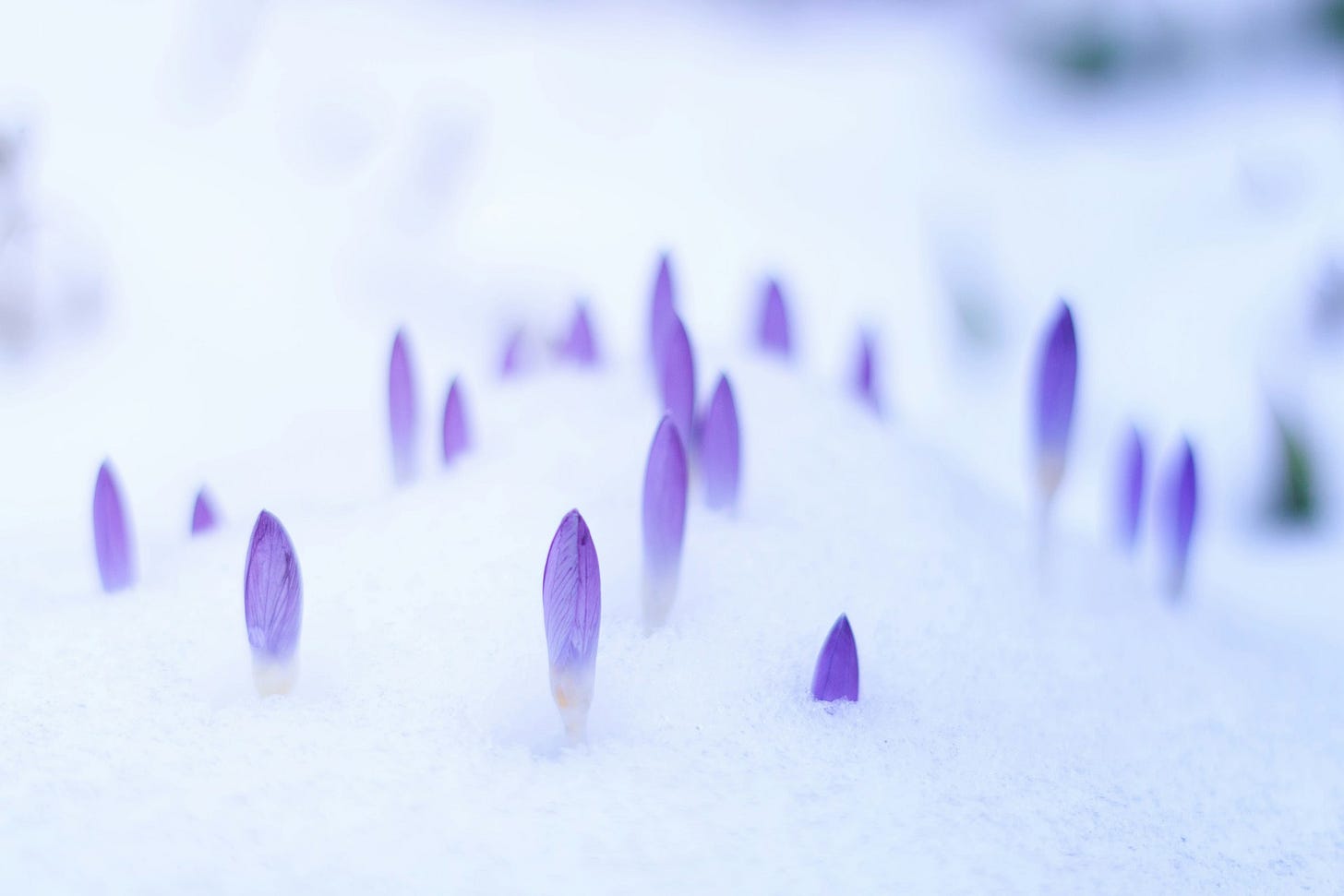
It has long puzzled me that we have one day to celebrate fresh starts—just as we have one day to celebrate gratitude, one day to celebrate generosity, and one day to celebrate a very narrow definition of love. At least, in the Gregorian calendar.
These three general areas: gratitude, generosity (including of spirit) and unconditional love are the foundations of both every true spiritual path and a meaningful life. In a wiser world, these would be the foundation of our culture. Instead, we have world leaders driven by contempt, greed and hatred.
While that’s hard-to-impossible to ignore, we don’t have to wait for them to change. We can create a parallel culture by embodying more positive traits, so why not begin in this moment?
Time is an illusion, but energetic potential is not
Time is an arbitrary human construct, and so is New Year’s. So don’t worry if today, tomorrow or any moment, really, doesn’t feel special to you; we can all start fresh at any moment.
That said, there is something powerful in the collective energy around New Year’s. When billions of people pause simultaneously to consider what they want to create or leave behind in the year ahead, that combines to create powerful energetic potential.
We’re slowly emerging from the darkness of Winter Solstice and moving towards the light of spring and summer. “Slowly” is the key word here. Many people treat New Year’s like a race to get as many things done as possible. Remember that we’re still in winter, still in a time of rest. Start new projects, sure, but don’t expect to complete them by the first weekend of the year. Just as seeds germinate in winter, the intentions we plant now need patience and care before they blossom.
Resolutions, commitments, intentions and words
When I was growing up, New Year’s resolutions were common—everyone wanted to lose weight, get in shape, quit smoking, etc.
Resolutions are bound to fail, because they’re created from a place of resistance—what we don’t want. The well-worn phrase, “What you resist, persists” comes to mind. In other words, resolutions set us up to fail.
Somehow, I intuitively knew this about 25 years ago, when I wrote an article for One World Live, which was actor Melanie Griffith’s “inspiring articles for women” website circa 2000.
“I don't recall exactly when I resolved to give up resolutions. It was around the same time I realized that diets were quick fixes, and I had to change my thinking around food and exercise. Resolutions are quick fixes, too, something we can tell people to show them we're aware of the parts of ourselves that need improvement. I've learned that if I'm serious about growing as an individual, I need more than a pithy resolution: I need to make an ongoing commitment to myself.”
—Me, from Commitments vs. Resolutions
Even so, I can see that at the time, my idea of making commitments was rooted in resistance to how (and who) I was. I was also coming from a place of who I thought I should be from an intellectual or cognitive viewpoint, rather than from a place of soul wisdom or wholeness.
From a cognitive decision to a spiritual one
I now see that ‘commitment’ was my intellectual synonym for intention, the setting of which is another popular New Year’s ritual. Intention carries slightly less resistance than commitment.
Around 2010, as I moved from the hyper-intellectual world into a more spiritually oriented one, I began hearing about choosing a guiding word for the year. Every December, I would choose ‘allow,’ ‘flow,’ ‘abundance’ or something similar. The challenge with that is that it still implies that something is lacking. I mean, money was seriously lacking! But I allowed what was; I had immense creative flow; and my life was filled with every kind of richness except financial.
This year, I was inspired by this Instagram post from Jennie Lee, a yoga, meditation and spiritual teacher, and a fellow Sounds True author.
In the second image, she invites us to choose a quality we intend to cultivate, one that will benefit the world as well as ourselves.
Building on all my previous New Year’s traditions, I combined this with an intention:
My intention for 2025 is to live in alignment with my soul’s purpose.
The distinction between soul and soul’s purpose
I’ve been living in alignment with my soul for years—more than a decade. It’s quite cozy, and it feels effortless. Yet over the past year, my soul has been nudging me out of my comfort zone (the forest) and back into the world.
Living my soul’s purpose, on the other hand, is an active, outward expression of that alignment—sharing what I’ve learned in ways that can support others’ transformations and maybe even help to create a world where gratitude, generosity and love are celebrated every day.
There’s some anxiety, because for years I experienced resistance towards so much of my old conditioning and my culture of origin. Not to mention—and maybe you’ve noticed this?—the world is a bit of a dumpster fire right now. But that’s exactly why this shift, this alignment, is essential. This year, more than ever, I encourage everyone to lean into alignment with your deepest purpose—because that’s where hope and transformation begin.
In the comments, please share the quality you want to develop for 2025. What might that look like for you?





Developing my creative soul has been a decade-long endeavor. Like you, though, I want to go out of my comfort zone and live my creative soul's purpose by "sharing what I’ve learned in ways that can support others’ transformations." I have more stories to tell.